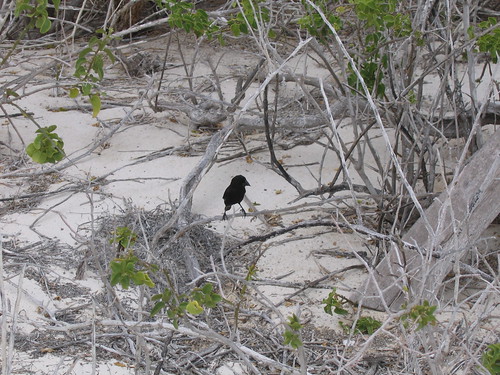This book was recommended to me when I was in the Galapagos; I finally got round to reading it and I’m really glad I did. It’s an account of Peter and Rosemary Grant’s long-term study to measure the effects of natural selection on finches in the Galapagos. When this book was published in 1994, the study had been going for twenty years, but it’s still ongoing.
The choice of Galapagos finches isn’t just because of their iconic status in history of evolution; they’re an isolated population, they’re particularly variable, and a few very similar competing species live together in a very simple environment — only a few species of food plant, and almost no other small birds.

Over that period, they and their students have collected a staggering amount of data; detailed measurements of every finch on the island of Daphne Major, and records of who breeds with who, where their territories are, what songs they sing, what they eat, which territories are most productive, how the food supply varies from year to year and so on. That data has enabled them to show not just that tiny variations (in this case, particularly beak size) can have a measurable effect on the survival and breeding prospects of a bird, but that a change to the environment — a very wet year or a drought — can select for different physical characteristics to the extent of having a measurable impact on the average measurements of the population.
In effect, they have showed that you can observe evolution in action and that in the right circumstances it can happen extremely fast.
I really thought this was an excellent book. The detailed account of a single large research study sets it apart from all the other popular accounts of evolution I’ve read. There’s easily enough material to sustain a whole book and Weiner does an excellent job of communicating all the details with enough human interest to keep the book getting bogged down.